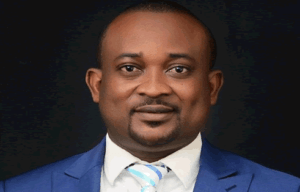Government to implement media capacity enhancement programme
Government is in the process of implementing a Media Capacity Enhancement Programme (MCEP) to boost the competences of media practitioners in the delivery of their mandate.
Mr Pius Enam-Hadzide, a Deputy Minister of Information, announced this on Friday at the World Press Freedom Day flag-raising ceremony in Accra, on the theme: “Media for Democracy: Journalism and Election in Times of Disinformation”.
He said the protection of media practitioners is also to witness a boost with the introduction of a National Coordinating Mechanism on the Safety of Journalists before July.
The World Press Freedom Day was proclaimed by the United Nations General Assembly in 1993, following the recommendation of the 26th session of UNESCO’s General Conference in 1991.
It celebrates the fundamental principles of press freedom, assesses the state of press freedom throughout the world, defends the media from attacks on their independence, and pays tribute to journalists who have lost their lives in the line of duty.
“We recognize your partnership in the fight against military dictatorship, we recognize your partnership in the fight against corruption and immorality in public, and Galamsey (illegal mining),” he stated.
“The President has invited us to be citizens, not spectators. In responding to this invitation, the growing incidence of citizen journalism as witnessed particularly on social media must be conducted in decorum and mutual respect, hiding behind anonymity on social media to publish falsehood and peddle fake news is a breach and an affront on citizenship.”
He noted that professional journalists must differentiate themselves from citizen journalism by relying on factual and accurate response.
He assured the media of this government’s commitment to supporting measures that deepen the frontiers of free expression in the advancement of our democracy.
“Government salutes gallant journalists of Ghana who continue to do their job of educating, informing and entertaining the Ghanaian people without fear or favour and whose guiding principle is national cohesion and development,” Mr Enam-Hadzide said.
“As a country, we are making steady progress towards a conducive environment towards the practice of journalism, from the liberalization of the media space, through the repeal of the criminal libel laws to the recent passage of the Right of Information Act.”
He said the Ministry of Information had already begun consultations towards the development of an implementation roadmap, and urged the media to provide support.
Mr Enam-Hadzide reiterated Government’s condolences to the family of the late Ahmed Suale.
He said violence against media practitioners and journalists could not and must not be tolerated anywhere in the world; adding that “not even the allegation of ethical bankruptcy and professional mediocrity, can justify an attack of any form on a journalist”.
He said security agencies had the full support of the Government, to do all within their power to quickly bring the perpetrators to book.
Mr Rowland Affail Monney, the GJA President, said the Association welcomes wholeheartedly government’s planned intervention of safety mechanisms for Journalists.
“The timing is perfect and the response, concrete. Without wrestling with doubt, we hope and pray that this intervention will take off as planned. We also embrace government’s capacity building initiative for journalists.”
Mr Yaw Boadu-Ayeboafoh, the Chairman of the National Media Commission (NMC), urged the media to ensure that when matters of public interest come up, it was prudent to empanel individuals and personalities who were knowledgeable in the subject matter to ensure objective discourse, and not resorting to cacophony support and loyalty to political parties.
Mr Abdourahamane Diallo, UNESCO Representative to Ghana, said Ghana was losing its envious place as a beacon of press freedom in the world.
“The 2019 World Press freedom Index, states that Ghana has lost its status as Africa best ranked country, dropping from a previously held rank of 23 in 2018 to 27 in 2019. Currently, Namibia is the best-ranked in Africa. We have to reverse the decline.”
Source: GNA

